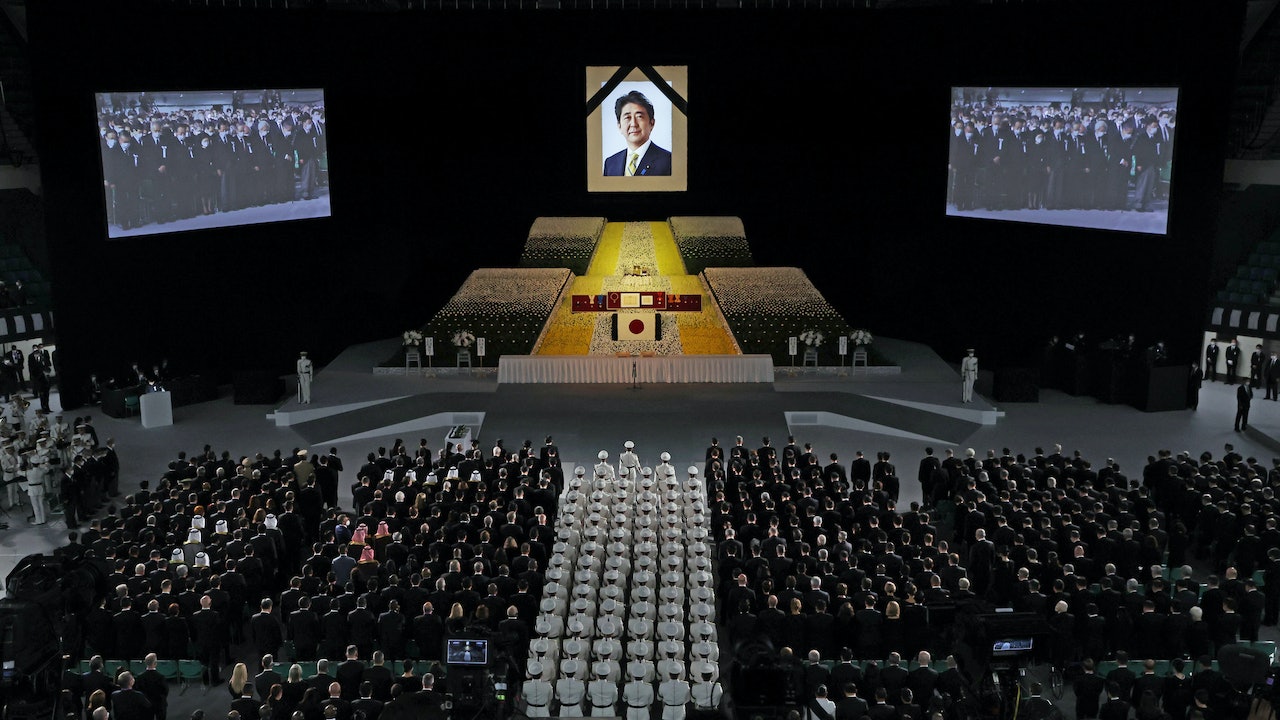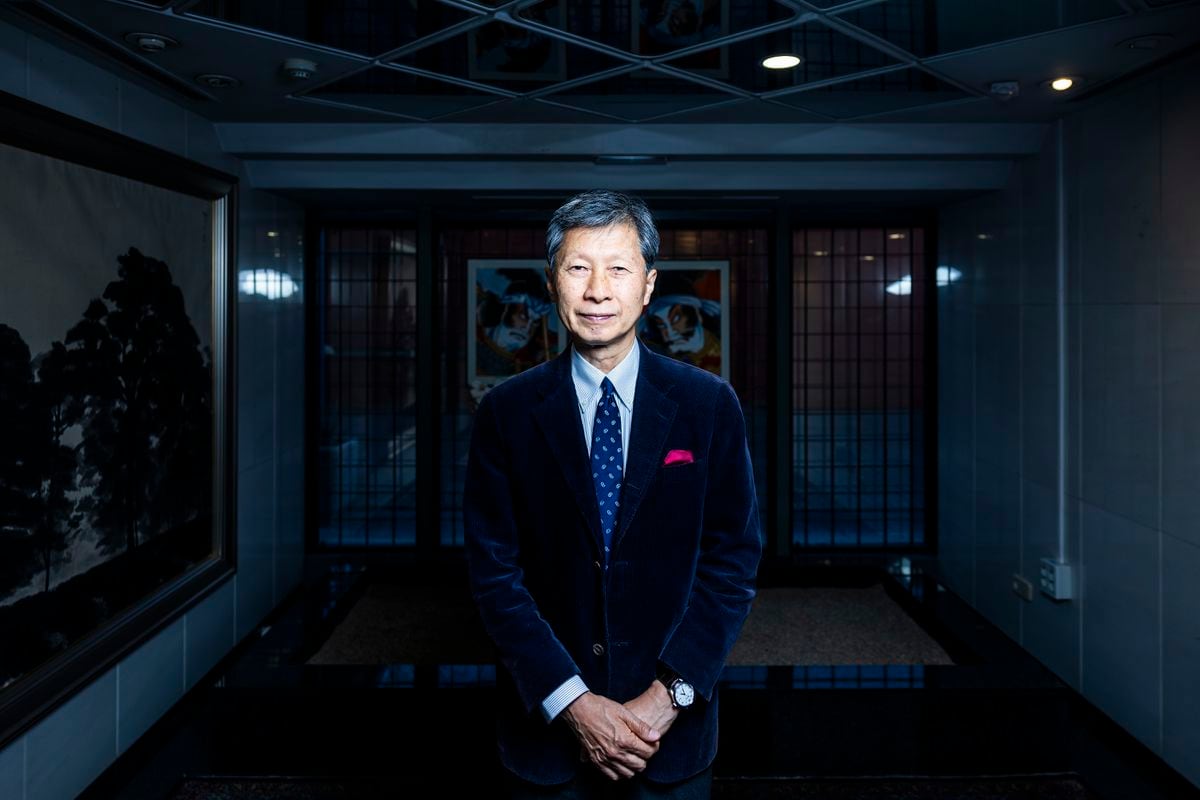The Japanese government held a state funeral ceremony on September 27 for former Prime Minister Shinzo Abe, who was assassinated in July. However, this state funeral has caused a lot of opposition in Japan from the beginning.
One of the main reasons why Japanese people oppose state funerals is that the cost of state funerals has risen steadily from the previously announced. The Japanese government's latest estimate that state funerals will cost 1.65 billion yen is more than six times the amount originally announced.
In order to quell public anger, the Kishida government gave the rhetoric of killing two birds with one stone, saying that it would take advantage of the state funeral to launch a "diplomacy of condolences" and would hold marathon talks with 30 overseas dignitaries within three days.
However, during the preparation for the state funeral in the past two months, the Queen of England passed away, and the Queen's state funeral happened to be held a week earlier than Abe, which made Japan very embarrassed.
Although the Queen of England is a virtual head of state, she has been respected by the British people and the international community for 70 years, and she enjoys a high-standard state funeral that is rarely seen in the world. And members of the royal family went to the UK to attend in person, with as many as 2,000 guests, and millions of people said goodbye in London.
The Queen: The picture shows the coffin of Queen Elizabeth II arriving at Windsor Castle on September 19, 2022.
(AP)
In contrast, although Japan has always regarded itself as a Western country, as a member of the G7, very few Western leaders attended Abe's state funeral. Most of them sent representatives to attend, and all G7 leaders were absent.
The main leaders attending the funeral included Indian Prime Minister Narendra Modi, Singaporean Prime Minister Lee Hsien Loong, Vietnamese President Nguyen Xuan Phuc and Australian Prime Minister Albanese and other regional leaders.
In particular, Modi, as the Prime Minister of the Commonwealth of Nations, did not attend the Queen's funeral, but attended Abe's funeral, giving Japan enough face.
Even China, which is at odds with Japan, first sent its vice-president to attend the Queen’s state funeral, and then sent its vice-chairman to Abe’s state funeral—although the weight was different, it was considered a vice-national status.
Another South Korea, which has always had a bad relationship with Japan, also sent Prime Minister Han Deok-soo to attend.
Therefore, it is the Asian countries that can really give Japan face at a critical time.
As for Emperor Naruhito, because according to Shinto tradition, funerals are considered unclean occasions, Japanese emperors usually do not attend funerals except for their parents.
But the paradox is that Naruhito and his wife went to London to attend the Queen's State Funeral.
Interesting.
Abe's state funeral, held only a week after the Queen's state funeral, inevitably looks bleak.
Even the Japanese people can't help but sourly compare the two state funerals, which has become a hot topic since last week.
In fact, according to the wishes of Abe's widow Akie Abe, she had made it clear at the beginning that she did not want to hold a state funeral for Abe, but hoped to bid farewell to her husband in a private funeral ceremony. After his body was cremated, the ashes were returned to the family cemetery in Yamaguchi Prefecture. Burial.
But in the end, the family's wishes could not hold back the current Prime Minister Fumio Kishida's insistence on holding a state funeral.
On September 27, in Tokyo, Japan, Abe Akie, the wife of Shinzo Abe, entered the venue with Abe's ashes and handed them over to the staff to place on the altar.
Shinzo Abe's body was cremated as early as July 12.
(Franck Robichon/Pool Photo via AP)
Looking back at the past, after the war, Japan abolished the old constitution, and the "state funeral order" was also abolished. Under the model of the royal family, only the death of the emperor can hold a big funeral (meaning a state funeral).
The only isolated example of a prime minister holding a state funeral was the state funeral of Shigeru Yoshida in 1967. At that time, the Japanese political circle gave Shigeru Yoshida an unprecedented honor for his political achievements in leading the country out of the post-war predicament, establishing the direction of development and laying the economic foundation.
Abe is clearly not at that level.
Elevating Abe's funeral to a state funeral level, Kishida's intentions are clear: he hopes to unite the political unity of the right-wing and the constitutional revisionists, and at the same time absorb the political energy left by Abe, and invite G7 and other leaders of many countries to come to the state funeral to create his own good Diplomacy and the image of Japan's "big country face".
However, things backfired. Abe's funeral has not yet been held, and there are endless disputes about his state funeral, which has caused Kishida's public opinion support rate to decline instead of rising; at the funeral scene, G7 leaders did not arrive, but Asian countries supported Japan. The scene started.
Fumio Kishida, who insisted on holding a state funeral for Abe, also gave himself a heavy punch in a way that embarrassed the deceased Abe.
Through Abe's state funeral, China should see these diplomatic opportunities and challenges clearly [Abe Shinzo State Funeral.
Photo Series] Fumio Kishida strongly pushes to hold Abe Shinzo State Funeral amid controversy over diplomatic funerals.
Photo Series|The guests of the Japanese Budokan are like clouds and the people are protesting against the state funeral. The difference between Abe's state funeral and previous generations: Kishida gives four reasons for holding a state funeral







/cloudfront-eu-central-1.images.arcpublishing.com/prisa/EH2E3EU7EVH5RNBQSZESTWOGZE.jpg)


/cloudfront-eu-central-1.images.arcpublishing.com/prisa/KMEYMJKESBAZBE4MRBAM4TGHIQ.jpg)



